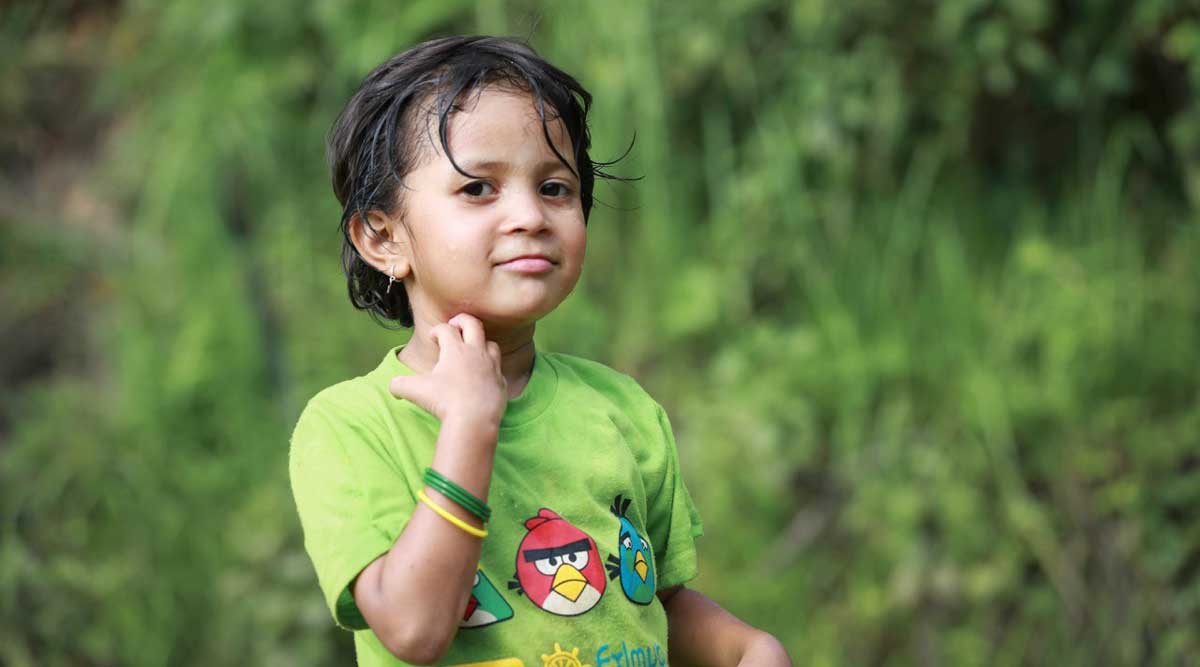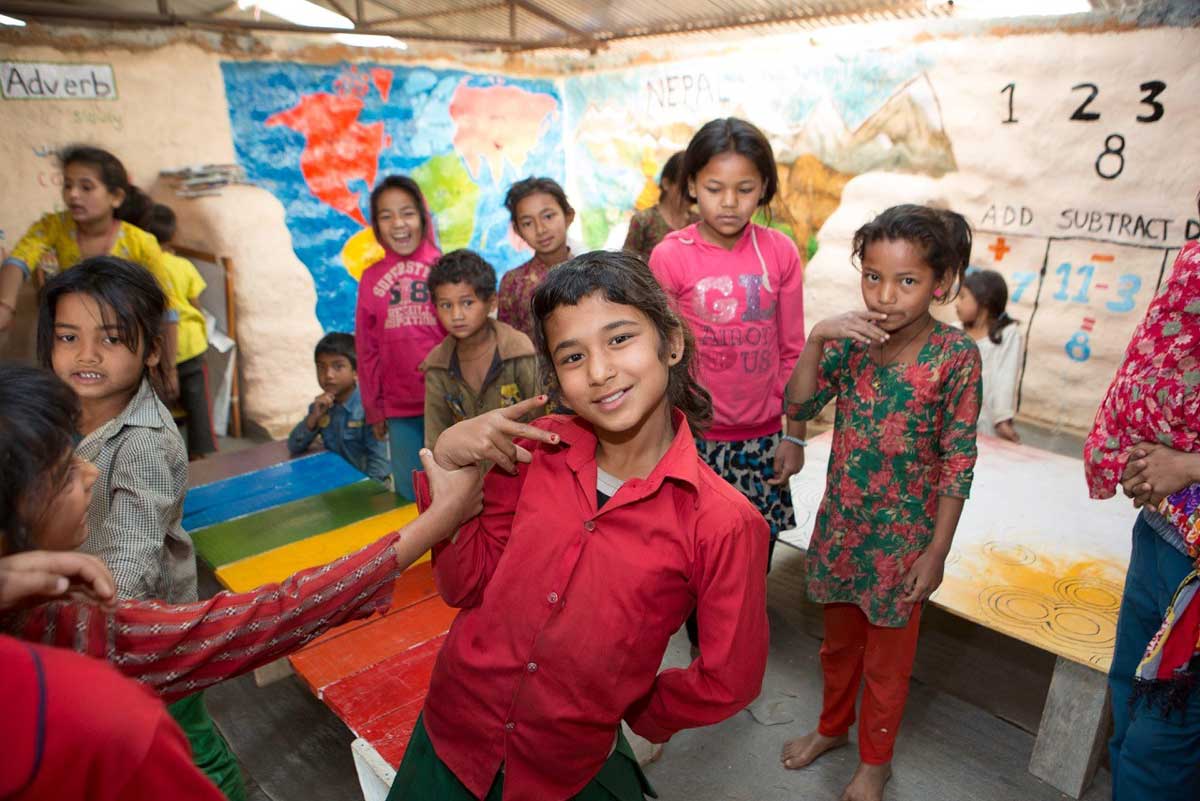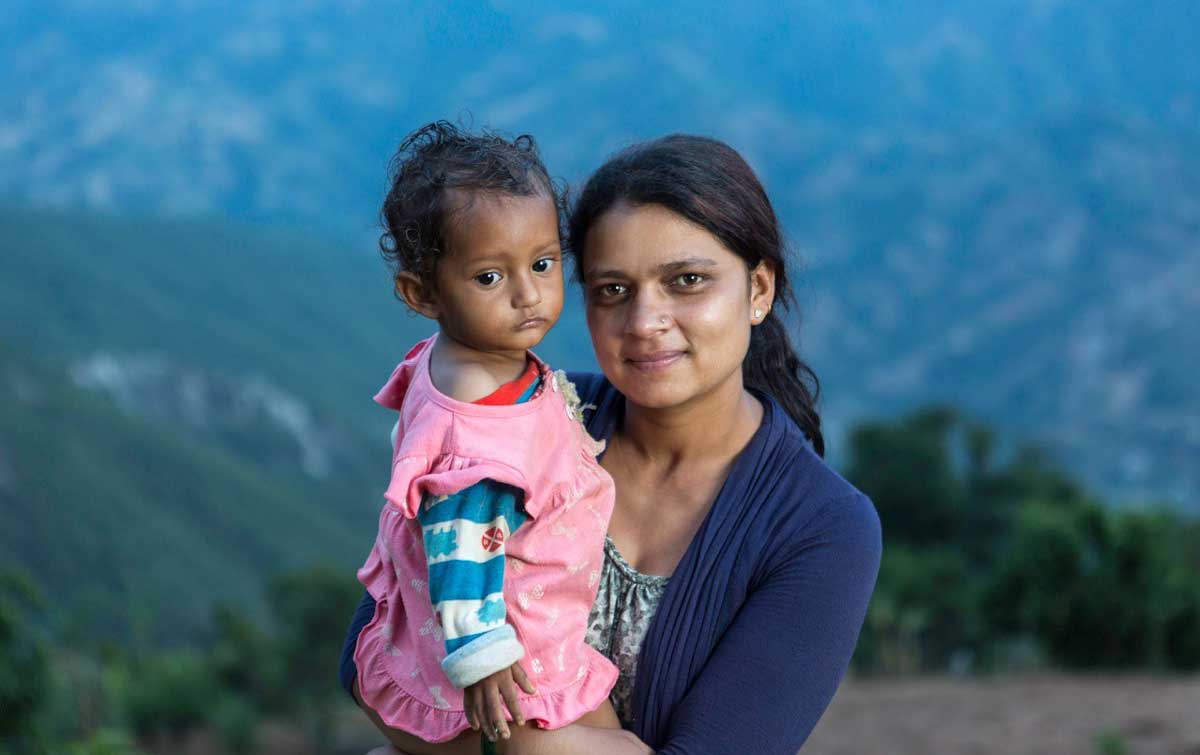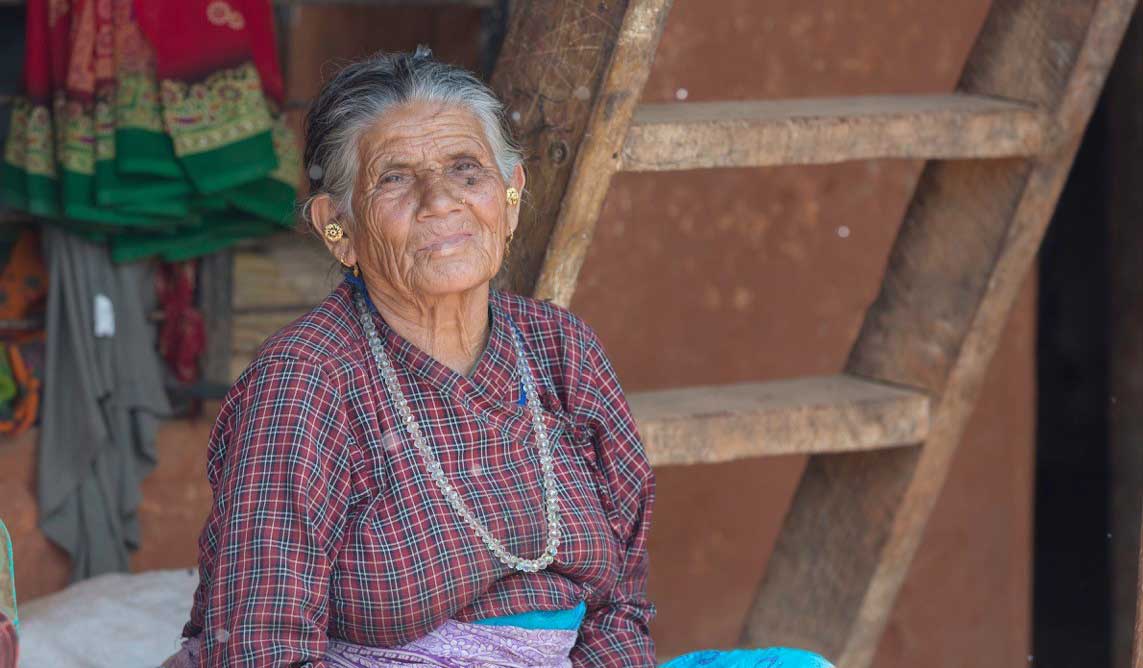
Samicha and her mother live at the farm
Editor’s Note:
Domestic abuse in Nepal is rampant.
The leading cause of death among women of childbearing age is suicide. Widows are tossed out and branded as witches. Victims of the sex trade are shunned
by families.
These women have nowhere to go. They are skilled farmers, they can support themselves and feed their children if they have a little land.
Her Farm is a healthy, vibrant mountain community where women and children have access to healthcare, education and economic opportunity in an environment
where human rights are valued and respected.
Her Farm is growing hope for women in the Himalayas.
Sutra Journal:
What is Her Farm? Can you tell us who you are and how this came about?
Scott and Sunita MacLennan:
Her Farm started out as a home for women and their children, who needed a safe-haven to escape domestic abuse. It was Sunita’s idea and based on her own
life experience. Her parents were hoping for a son, but got a daughter, which isn’t a joyous occasion in Nepal. A daughter represents a future dowry to
pay, and a daughter cannot perform burial rites under Hindu law, to ensure proper passage of parents from this life.
Frequently dirty and unkempt, underfed and underappreciated, she felt like an unwanted second class citizen in her home.
Later in life her father married her to a boy from a faraway village. He turned out to be abusive. She was able to escape that life and wanted to help
other women do the same. It’s not easy in Nepal, society is very much against divorce. To leave even the worst marriage typically means your entire family
will shun you. Without strong family ties, it’s difficult to survive.
Her Farm quickly became much more than a safe-haven from abuse. Young and unmarried women sought employment there to stave off parental pressure for
marriage. Today there are women from wide variety of backgrounds as well as castes. They live together, work together and support each other’s success and
wellbeing, like a giant family of 25 women.
Sutra Journal:
What are your observations on the effects of this on the community?
Scott and Sunita MacLennan:
Her Farm has become the hub of the village. When the earthquakes happened it was to Her Farm that everyone came for help, relief and news of the wellbeing
of relatives throughout Nepal. Her Farm was the distribution point for food and materials for temporary shelters. It has become an integral part of the
community and the point of connection for all that goes on there. Whenever anyone in the community needs help, they come to Her Farm.

Her
Farm holds before school programs for children in the village with English and computers at the top of the list, but not exclusively. The women of Her
Farm, and the volunteers who come and visit, also help with homework on any subject. Government schools are supposed to teach in English, but in rural
communities there are few teachers capable of speaking English, much less teaching in English. Her Farm helps to fill both the language and the technology
gap, and in so doing helps keep the village children competitive with their Kathmandu peers, who are learning in English and have access to computers. It’s
rare to have such things in a village, very rare.
We have 30-40 children come for classes in the morning before their regular school. A majority of them are girls who would otherwise be at home helping
cook, clean and feed the livestock at that hour of the day. Some arrive at 5:30am having walked an hour to reach the farm. Parents would not forgo the
morning labour help at home if they weren’t committed to making better lives for their children.

Laxmi and Barsa. Barsha is not her daughter, both live at the farm
In many very real ways, the success of the village is the success of Nepal. With more than 80% of the population living in villages and working subsistence
farms, it is their education and access to useful technologies that will advance the country from its current position near the very bottom rung of least
developed countries.
Much of our reason for expanding beyond safe-haven housing into full-fledged development work was an acknowledgment that for Her Farm to succeed, the
entire village needed to succeed right alongside it.
The view of women is improving in the community as well. The women of Her Farm are role models and mentors for other women. Her Farm is a big farm, women
oughtn’t to be able to own and operate such a place, say local norms, and yet they do. We’ve heard songs of praise from many women in the village, for the
leadership shown by the women of Her Farm.
The most touching moment I can think of, that demonstrates our impact, involves an 82 year old grandmother from the Brahmin caste (high caste). During the
aftermath of the quakes, many families came together at Her Farm to create a communal kitchen. This meant families from all castes. One day a woman voiced
her discontent at eating food from a kitchen where low caste women were working, as some of our girls are Dalit (untouchable caste). Grandma looked at the
woman, and said:
“What does that matter now, we suffer together, and we’ll eat together.”
Or words to that effect. A huge breakthrough moment that an 82 year old high caste woman would think, must less utter those words out loud. She’s our
immediate neighbour, she’s been around Her Farm a lot, and it has changed her thinking, or at least softened her position on some things.

an 82 year old grandmother from the Brahmin caste
Sutra Journal:
How has the Her Farm Project changed something in you, or allowed you to see the world in a different way, perhaps?
Scott and Sunita MacLennan:
When we started this, we really didn’t know if it would fall flat on its face or succeed. Sunita knew how hard it would be to have women from abusive
backgrounds and various castes living and working cooperatively. I knew that it was going to be a hard sell to donors who like to build schools, build
health clinics and more “bricks and sticks” projects. Selling them that a group of women farming together could change Nepal, was going to be a hard sell.
Today, four years into this, we’ve both discovered our fears were unfounded. 25 women call Her Farm home and live and work together daily. They share
everything, they care for each other’s children and for each other. If you visited Her Farm it might well take you a few days to figure out which woman
goes with which child, so close are their relationships. Much to my relief, donors are starting to get it. It’s ringing true that with a majority living in
villages and working the farms, getting ‘in the trenches’ with the people who you desire to help is the way to go.
Sutra Journal:
How could our readers support Her Farm either financially or in person? Do you have teaching or skills requirements of volunteers? How could an individual
find out more?
Scott and Sunita MacLennan:
People are always welcome to donate, but the majority of our funding at Her Farm comes from volunteers that we host at the farm. About 150 people a year
from 26 countries (and counting), visit the farm to help in the fields, the classrooms, with repairs and in other capacities. This provides many women with
the job at the farm - cooking, hospitality management, logistics; and of course it gives them the opportunity to practice English, the business language of
Nepal, which many women have been excluded from learning.
So, visiting www.HerFarmNepal.org and donating is good and kind.
Actually visiting Her Farm as a volunteer is even more beneficial.